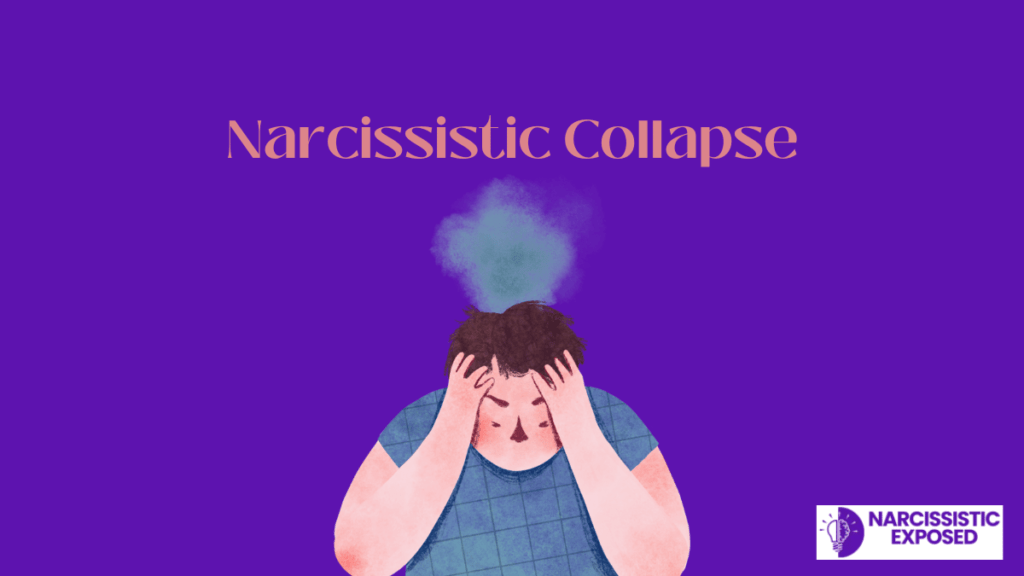
The question of whether narcissists are evil is complex and intertwines with moral philosophy and psychological analysis. Labeling behaviors as “evil” involves a moral judgment that is subjective and culturally influenced. In psychological terms, “evil” is not a diagnostic category nor a descriptive term used by professionals. Instead, psychology seeks to understand behaviors through the lens of mental health, developmental history, and the individual’s social context.
This article explores the intricate nature of narcissism and its alignment with or divergence from what may be socially or morally classified as “evil.” This exploration provides a nuanced perspective on narcissistic behaviors, encouraging a more profound understanding rather than a simplistic condemnation.
Table of contents
The Nature of Narcissistic Traits
Narcissistic traits manifest in various behaviors and attitudes that can range from mildly self-centered to severely destructive. Understanding these traits is crucial for recognizing how narcissism impacts both the individual and those around them.
Common Traits and Behaviors of Narcissists
Narcissists typically exhibit a pattern of grandiosity, a constant need for admiration, and a lack of empathy. These traits can result in specific behaviors such as monopolizing conversations, belittling or looking down on people they perceive as inferior, and insisting on having the best of everything — for example, the best car, office, or job title. Additionally, narcissists often display a sense of entitlement, expecting special treatment and unquestioning compliance with their expectations. They may also take advantage of others to reach their goals, showing little regard for the feelings and interests of those around them.
Distinctions Between Maladaptive and Malignant Narcissism
While all narcissists share some common behaviors, not all narcissism is equally damaging. Maladaptive narcissism refers to traits that are detrimental to the narcissist and often lead to personal distress or impaired social functioning. This form of narcissism can include excessive self-focus, sensitivity to criticism, and difficulty in maintaining relationships, but does not necessarily entail malicious intent.
Malignant narcissism, on the other hand, includes antisocial behavior, aggressiveness, and a severe lack of empathy, crossing over into behaviors often associated with psychopathy. Malignant narcissists are more likely to engage in intentional manipulation and harm towards others. They exhibit an even greater degree of arrogance and a more frequent use of exploitation.
Psychological Roots of Narcissistic Behavior
Understanding the psychological origins of narcissistic behavior is essential for a comprehensive grasp of why individuals exhibit such traits. Both developmental factors and various psychological theories provide insight into the formation of narcissistic personalities.
Developmental Factors
Narcissistic traits can often be traced back to early developmental experiences. Parenting styles that are overly permissive, excessively critical, or highly pampering can contribute to the formation of narcissistic behaviors. For instance, children who are excessively praised for minimal accomplishments may develop an inflated sense of self-importance. At the same time, those rebuked may learn to mask their insecurities with grandiosity and arrogance. Additionally, inconsistent caregiving, where support and attention are unpredictable, may make children overly self-reliant and recognition-seeking.
Psychological Theories Explaining Narcissism
Several psychological theories have been proposed to explain the development of narcissism. Freudian theory, for example, suggests that narcissism results from a fixation at an early developmental stage, leading to an excessive self-love that was initially directed at a primary caregiver. Object relations theory posits that narcissistic symptoms may arise from disturbances in the relationship between the infant and significant others, specifically concerning the mirroring and idealization processes that help the child form an understanding of the self.
More contemporary theories, like the cognitive-behavioral approach, suggest that narcissism develops as a result of learned behaviors and thought patterns that are reinforced over time. These behaviors may be adopted as coping mechanisms for deep-seated feelings of inadequacy and vulnerability.
Furthermore, evolutionary psychologists have explored the idea that certain narcissistic traits may have been advantageous in ancestral environments, helping individuals to compete effectively for mates and resources.
Narcissism and Moral Judgment
Navigating the moral landscape of narcissism involves understanding the concept of moral agency within individuals displaying narcissistic traits and comparing these traits to those seen in sociopathy and psychopathy. This distinction is crucial in assessing the moral accountability and intentions behind their actions.
The Concept of Moral Agency in Narcissists
Moral agency refers to the capacity of individuals to make ethical choices and understand the consequences of their actions. In narcissists, this capacity can be compromised by their personality structure, particularly their lack of empathy and heightened self-interest. Although narcissists understand right from wrong, their impaired empathy often skews their decision-making processes towards self-serving ends. Their sense of entitlement and grandiosity may lead them to justify morally questionable actions, believing they deserve exceptional consideration.
However, not all narcissists lack entirely moral agency. Many can adhere to societal norms and make ethical decisions, but they may choose to disregard these norms if they conflict with their desires or self-image. The extent to which they recognize and correct their moral failings often depends on the severity of their narcissistic traits and their willingness to reflect on and modify their behavior.
Narcissism vs. Sociopathy and Psychopathy
While narcissism, sociopathy, and psychopathy share certain traits, such as a lack of empathy and manipulative behavior, there are important distinctions. Sociopathy and psychopathy are both considered more severe forms of Antisocial Personality Disorder, characterized by a greater propensity for violating societal norms, lying, and demonstrating a general disregard for the welfare of others. Psychopaths, in particular, are known for their superficial charm intertwined with their manipulative and often criminal behavior, possessing even less regard for others’ feelings than narcissists or sociopaths.
Narcissists, while potentially manipulative and self-serving, do not generally possess the same level of emotional detachment from societal norms seen in sociopaths and psychopaths. Their behavior is often more about maintaining an inflated self-image and less about outright disregard for others’ rights.
Impact of Narcissistic Behavior
Narcissistic behavior can profoundly and profoundly affect personal relationships and professional environments. Understanding these impacts is crucial for those who interact with narcissists regularly, as it helps in developing strategies to manage these challenging dynamics effectively.
On Personal Relationships
In personal relationships, the impact of narcissistic behavior is often deeply felt and can be damaging. Narcissists’ lack of empathy and their need for constant admiration and attention can strain partnerships and familial ties. Partners of narcissists might find themselves in a perpetual state of trying to appease the narcissist’s needs, often at the expense of their emotional well-being. This dynamic can lead to one-sided relationships where the emotional needs of the non-narcissistic partner are consistently unmet.
Children raised by narcissistic parents can also suffer significant emotional consequences. They may struggle with self-esteem issues, as a narcissistic parent’s attention and affection are typically conditional and based on the child’s ability to meet the parent’s needs or expectations. This can lead to long-term emotional and psychological challenges, including difficulties forming healthy, reciprocal relationships in adulthood.
On Professional Environments
In the workplace, narcissistic behavior can disrupt team cohesion and overall productivity. Narcissists may seek to dominate projects, overshadow colleagues, or manipulate others to maintain their perceived status and control. Their lack of empathy can result in a disregard for team dynamics or the contributions of others, fostering an environment of competition over collaboration.
Furthermore, narcissists in leadership positions may promote a toxic organizational culture by prioritizing personal gain over collective goals. They might resist criticism and feedback, which can stifle innovation and growth. Colleagues and subordinates may experience increased stress and job dissatisfaction, leading to higher turnover rates and decreased organizational morale.
The Ethical Debate: Misunderstanding vs. Malice
The ethical evaluation of narcissistic behavior often hinges on the question of intentionality and the narcissist’s awareness of their actions. Distinguishing between misunderstanding and malice is essential to fairly assessing the moral responsibility of individuals with narcissistic traits.
Analyzing Intentionality in Narcissistic Actions
Narcissists’ actions often stem from deep-seated needs for admiration and dominance, which can cloud their intentions. While some actions may appear malicious, they might not be intentionally harmful but rather mechanisms to cope with their insecurities or to maintain their self-esteem. The complexity of intention in narcissistic behavior makes it challenging to discern when actions are the result of deliberate malice versus a pathological response to unmet psychological needs.
For instance, a narcissist may manipulate someone to gain affirmation or attention, not necessarily with the intent to harm but as a way to validate their self-worth. This distinction is crucial because it affects how we respond to and manage relationships with narcissists—understanding that not all harmful actions are rooted in malice can lead to more effective and compassionate strategies.
The Role of Awareness and Choice
The degree of awareness that narcissists have about the impact of their actions varies greatly. Some may be acutely aware and unconcerned about the harm they cause, while others might be oblivious due to their psychological makeup. This awareness, or lack thereof, plays a significant role in assessing their moral agency and responsibility.
The ability to choose how to behave is another critical factor. Narcissists with greater self-awareness and understanding of their condition have more responsibility to choose actions that are less harmful to others. Those who are aware of the pain they inflict but choose to continue such behaviors might lean closer to malice than those who are unaware of their actions’ repercussions.
Coping with Narcissistic Individuals
Dealing effectively with narcissistic individuals requires understanding and strategy, both for personal interactions and in clinical settings. Here, we explore practical approaches for individuals who find themselves dealing with narcissists regularly and advice for mental health professionals who provide care to such personalities.
Strategies for Individuals
For those interacting with narcissists in personal or professional settings, setting clear boundaries is crucial. These boundaries should be firm and consistently maintained to prevent narcissists from encroaching on personal space or manipulating situations to their advantage. It’s also important to avoid engaging in power struggles or emotional confrontations, as narcissists thrive on these conflicts. Instead, focus on assertive communication that expresses needs and expectations clearly without aggression or passivity.
Another effective strategy is to manage expectations when dealing with narcissists. Recognizing that their behavior stems from deep-seated personality issues can help temper expectations for change and reduce personal frustration. Keeping emotional distance and not taking their behaviors personally can also help maintain one’s mental health and perspective.
Advice for Mental Health Professionals
For mental health professionals, treating narcissistic individuals can be challenging due to their resistance to acknowledging problems or engaging in reflective processes. Therapists need to establish a therapeutic alliance based on respect and nonjudgmental understanding. Professionals should strive to help narcissists see the benefits of change without directly confronting their self-image, using motivational interviewing techniques to explore discrepancies between their ideals and their actual behaviors.
Therapists must also be mindful of the potential for countertransference, as working with narcissists can often evoke strong feelings or reactions. Supervision and ongoing professional development can be critical in managing these dynamics effectively.
Finally, focusing on small, incremental changes and celebrating these as progress can encourage the therapist and the client. Due to the ingrained nature of narcissistic traits, expectations for rapid change can be unrealistic and may lead to disappointment and burnout.
Conclusion
In exploring the nature and impact of narcissistic behaviors, this article has delved into the complexities surrounding the question, “Are narcissists evil?” We have examined the traits and psychological foundations of narcissism, the moral considerations in labeling such behaviors, and the effect of these traits on personal and professional relationships.
Recap of Key Insights
Narcissistic behaviors, ranging from a need for excessive admiration to a lack of empathy, are deeply rooted in developmental and psychological factors. While often disruptive and harmful, these behaviors are not necessarily born of malicious intent but are frequently defensive mechanisms to cope with deep-seated insecurities and vulnerabilities. Understanding the distinction between maladaptive and malignant narcissism has highlighted that not all narcissists possess the same potential for harm or lack of moral agency.
Encouraging Compassionate Understanding
Given the complexities involved, it’s crucial to approach narcissism with a balanced perspective that fosters compassionate understanding rather than outright condemnation. Recognizing that many narcissistic behaviors are not entirely chosen and are influenced by factors beyond the individual’s control can help mitigate the stigmatization associated with this condition and encourage more humane and effective responses.
For those affected by narcissism, whether personally or professionally, learning effective coping strategies and setting appropriate boundaries can be immensely beneficial. For mental health professionals, providing nuanced and empathetic treatment is vital in helping individuals with narcissistic traits improve their relational patterns and quality of life.
Ultimately, by fostering an informed and compassionate dialogue about narcissism, we can better understand these behaviors and offer more constructive support to those impacted. This approach not only aids in personal and professional growth but also contributes to a more understanding and empathetic society.




